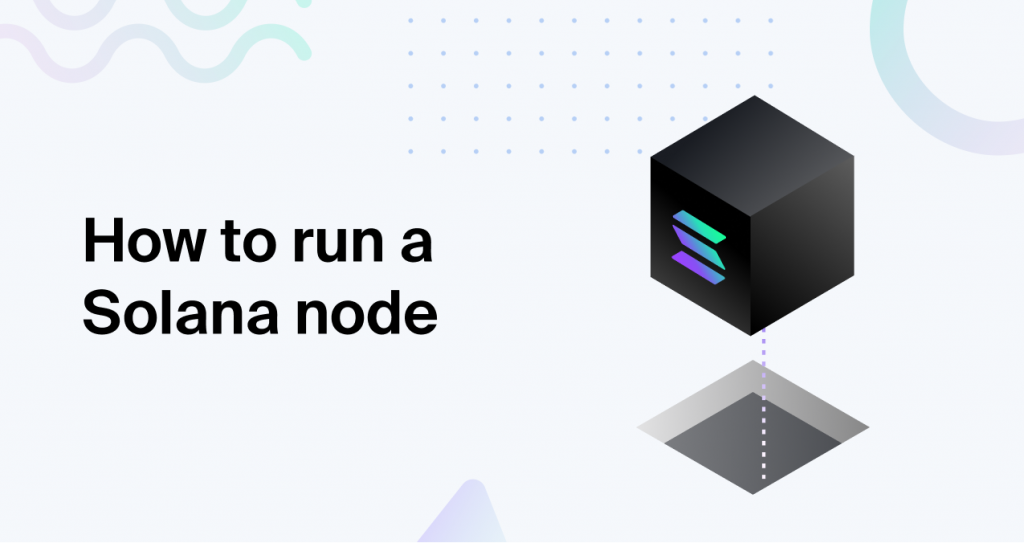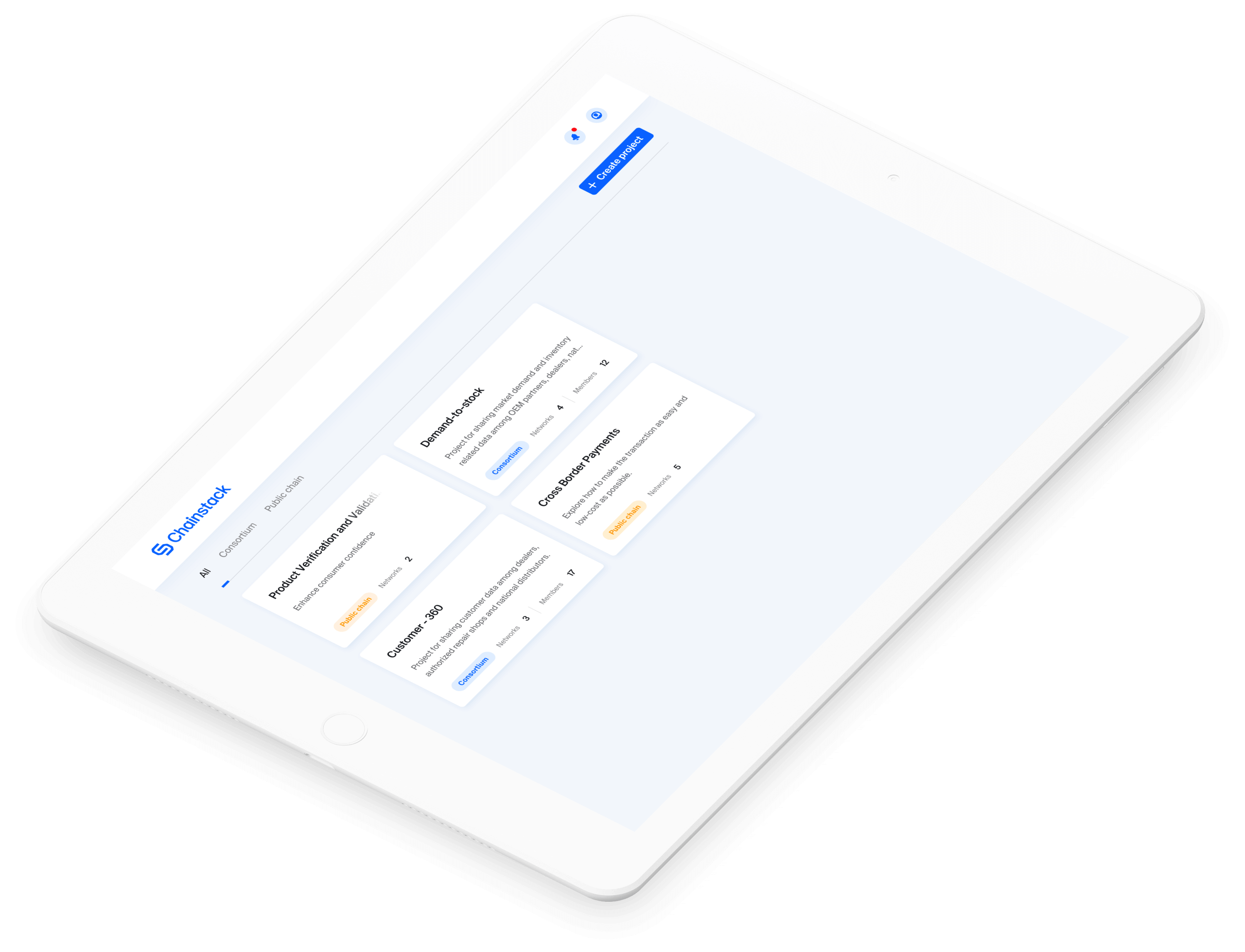How to run a Solana RPC node: setup guide

The manual setup instructions in this article are not maintained for accuracy. Your best option to get a running node in seconds is to deploy one with Chainstack – the best Solana RPC node provider.
With Chainstack, you skip manual package installs, catch-up sync time, and surprise maintenance work. Instead, you focus on building dApps while Chainstack delivers high-performance, production-grade Solana RPC endpoints backed by global infrastructure and 24/7 support.
Introduction
The easiest way to run a Solana RPC node is with Chainstack:
That said, this post provides step-by-step instructions on running a non-validating Solana RPC node and connecting it to the mainnet cluster, which could be helpful if you are benchmarking Chainstack against a self-hosted setup or researching best practices for Solana RPC providers.
This tutorial uses the Agave node client by Anza. See Agave documentation.
RPC node hardware requirements
| Component | Requirement |
|---|---|
| CPU | – 2.8GHz base clock speed or faster – 16 cores / 32 threads minimum – SHA extensions instruction support – AMD Gen 3 or newer – Intel Ice Lake or newer – AVX2 instruction support – AVX512f support is helpful – Higher clock speed preferred over more cores |
| RAM | – 512 GB or more for all account indexes – Error Correction Code (ECC) memory recommended – Motherboard with 512GB capacity suggested |
| Disk | – PCIe Gen3 x4 NVME SSD or better for each storage component: • Accounts: 1TB+ with high TBW (Total Bytes Written) • Ledger: 1TB+ with high TBW (consider larger for longer transaction history) • Snapshots: 500GB+ with high TBW • OS: 500GB+ (SATA acceptable) – Important: Accounts and ledger should NOT be stored on the same disk – Samsung 970/980 Pro series SSDs recommended |
See also the community maintained Solana hardware compatibility list.
1. Prepare and mount disks
Remember to make sure each of the two mounted disks is 1TB+ in size.
We will store our data in /var/solana on two different mounted disks:
- disk #1 for ledger and config —
/var/solana/data - disk #2 for accounts —
/var/solana/accounts
Partition the NVMe disks:
root@solana-node-01:~# sgdisk -Z --new=1:2048:0 --typecode=1:8300 /dev/nvme1n1root@solana-node-01:~# sgdisk -Z --new=1:2048:0 --typecode=1:8300 /dev/nvme2n1
Refresh the partition table:
root@solana-node-01:~# partprobe /dev/nvme1n1root@solana-node-01:~# partprobe /dev/nvme2n1
Format the new partitions with XFS:
root@solana-node-01:~# mkfs.xfs /dev/nvme1n1p1root@solana-node-01:~# mkfs.xfs /dev/nvme2n1p1
Label the filesystems:
root@solana-node-01:~# xfs_admin -L disk1 /dev/nvme1n1p1root@solana-node-01:~# xfs_admin -L disk2 /dev/nvme2n1p1
Update /etc/fstab with labels:
root@solana-node-01:~# sudo bash -c 'cat >> /etc/fstab <<EOF
LABEL=disk1 /var/solana/data xfs defaults 0 0
LABEL=disk2 /var/solana/accounts xfs defaults 0 0
EOF'Mount the filesystems:
root@solana-node-01:~# mount /var/solana/dataroot@solana-node-01:~# mount /var/solana/accountsroot@solana-node-01:~# mkdir -p /var/solana/{data/{ledger,config},accounts/snapshots}
2. sysctl additional values
Increase the memory mapped files limit, increase the UDP buffer size, and optimize the kernel parameters:
root@solana-node-01:~# bash -c "cat >/etc/sysctl.d/20-solana-additionals.conf <<EOF
fs.nr_open=1048576
kernel.hung_task_timeout_secs=600
kernel.nmi_watchdog=0
kernel.pid_max=131072
kernel.sched_min_granularity_ns=10000000
kernel.sched_wakeup_granularity_ns=15000000
kernel.timer_migration=0
net.core.rmem_default=134217728
net.core.rmem_max=134217728
net.core.wmem_default=134217728
net.core.wmem_max=134217728
net.ipv4.tcp_fastopen=3
vm.dirty_background_ratio=10
vm.dirty_expire_centisecs=36000
vm.dirty_ratio=40
vm.dirty_writeback_centisecs=3000
vm.dirtytime_expire_seconds=43200
vm.max_map_count=2000000
vm.stat_interval=10
EOF"
root@solana-node-01:~# sysctl -p /etc/sysctl.d/20-solana-additionals.conf3. Create a user for Solana
root@solana-node-01:~# adduser solana
root@solana-node-01:~# chown solana:solana /var/solana/data/
root@solana-node-01:~# chown solana:solana /var/solana/accounts/4. Install Solana CLI
The Solana CLI tool will install the Agave node client through a script at the next step.
Install the CLI tool by following the Agave docs: Install Solana CLI.
5. Create a run script
solana@solana-node-01:~$ mkdir /home/solana/bin && cd /home/solana/bin
solana@solana-node-01:~$ bash -c "cat > validator.sh <<EOF
#!/bin/bash
set -o errexit
set -o nounset
set -o pipefail
[ -f /var/solana/data/config/validator-keypair.json ] && echo "Identity exists" || (/opt/solana/solana-release/bin/solana-keygen new -o /var/solana/data/config/validator-keypair.json --no-passphrase --silent && echo "Identity created" )
/opt/solana/solana-release/bin/agave-validator \
--ledger "/pv-disks/disk1/ledger" \
--identity "/pv-disks/disk1/config/validator-keypair.json" \
--known-validator 6WgdYhhGE53WrZ7ywJA15hBVkw7CRbQ8yDBBTwmBtAHN \
--known-validator 7Np41oeYqPefeNQEHSv1UDhYrehxin3NStELsSKCT4K2 \
--known-validator C1ocKDYMCm2ooWptMMnpd5VEB2Nx4UMJgRuYofysyzcA \
--known-validator CakcnaRDHka2gXyfbEd2d3xsvkJkqsLw2akB3zsN1D2S \
--known-validator DE1bawNcRJB9rVm3buyMVfr8mBEoyyu73NBovf2oXJsJ \
--known-validator GdnSyH3YtwcxFvQrVVJMm1JhTS4QVX7MFsX56uJLUfiZ \
--known-validator GwHH8ciFhR8vejWCqmg8FWZUCNtubPY2esALvy5tBvji \
--entrypoint entrypoint.mainnet-beta.solana.com:8001 \
--entrypoint entrypoint2.mainnet-beta.solana.com:8001 \
--entrypoint entrypoint3.mainnet-beta.solana.com:8001 \
--entrypoint entrypoint4.mainnet-beta.solana.com:8001 \
--entrypoint entrypoint5.mainnet-beta.solana.com:8001 \
--expected-genesis-hash 5eykt4UsFv8P8NJdTREpY1vzqKqZKvdpKuc147dw2N9d \
--snapshots /pv-disks/disk2/snapshots \
--no-voting \
--private-rpc \
--rpc-bind-address 127.0.0.1 \
--rpc-port 8799 \
--gossip-port 8801 \
--dynamic-port-range "8000-8020" \
--full-rpc-api \
--wal-recovery-mode skip_any_corrupted_record \
--enable-rpc-transaction-history \
--enable-cpi-and-log-storage \
--init-complete-file "/pv-disks/disk1/init-completed" \
--limit-ledger-size 100000000 \
--account-index program-id \
--account-index spl-token-owner \
--account-index spl-token-mint \
--account-index-exclude-key kinXdEcpDQeHPEuQnqmUgtYykqKGVFq6CeVX5iAHJq6 \
--account-index-exclude-key TokenkegQfeZyiNwAJbNbGKPFXCWuBvf9Ss623VQ5DA \
--accounts-index-path "/pv-disks/disk2/accounts_index" \
--accounts-index-memory-limit-mb 204800 \
--accounts "/pv-disks/disk2/accounts" \
--expected-shred-version 50093 \
--rpc-pubsub-enable-block-subscription \
--block-verification-method unified-scheduler \
--minimal-snapshot-download-speed 50000000 \
--maximum-snapshot-download-abort 10000 \
--log -
EOF"
solana@solana-node-01:~$ chmod +x validator.sh6. Create a service for Solana
root@solana-node-01:~# bash -c "cat > /etc/systemd/system/sol.service <<EOF
[Unit]
Description=Solana Validator
After=network.target
StartLimitIntervalSec=0
[Service]
Type=simple
Restart=always
RestartSec=1
User=solana
LimitNOFILE=1000000
LogRateLimitIntervalSec=0
Environment="PATH=/bin:/usr/bin:/home/solana/.local/share/solana/install/active_release/bin"
ExecStart=/home/solana/bin/validator.sh
[Install]
WantedBy=multi-user.target
EOF"7. Install Prometheus Node Exporter
Install the Prometheus Node Exporter to export node metrics that you can later feed into your monitoring tools.
Note that you may want to change the version to the latest one here download/v1.3.1/
root@solana-node-01:~# wget https://github.com/prometheus/node_exporter/releases/download/v1.9.1/node_exporter-1.9.1.linux-amd64.tar.gz
root@solana-node-01:~# tar xvfz node_exporter-1.9.1.linux-amd64.tar.gz
root@solana-node-01:~# mv node_exporter-1.9.1.linux-amd64/node_exporter /usr/local/bin/
root@solana-node-01:~# useradd -rs /bin/false node_exporter
root@solana-node-01:~# tee /etc/systemd/system/node_exporter.service<<EOF
[Unit]
Description=Node Exporter
After=network.target
[Service]
User=node_exporter
Group=node_exporter
Type=simple
ExecStart=/usr/local/bin/node_exporter
[Install]
WantedBy=multi-user.target
EOF…if you need to change port:
root@solana-node-01:~# tee /etc/prometheus.conf<<EOF
ARGS=--web.listen-address=localhost:9101
EOFChange /etc/systemd/system/node_exporter.service to the ExecStart string to look like this:ExecStart=/usr/local/bin/node_exporter $ARGS
…continue:
root@solana-node-01:~# systemctl daemon-reload
root@solana-node-01:~# systemctl start node_exporter
root@solana-node-01:~# systemctl enable node_exporter
root@solana-node-01:~# systemctl enable --now sol8. Install and configure Nginx
Enable secure access to your Solana’s node endpoint with Nginx.
8.1 Install Nginx
root@solana-node-01:~# apt update && apt install nginx
root@solana-node-01:~# cd /etc/nginx/sites-available/
root@solana-node-01:~# vim default8.2 In location /, set proxy_pass http://solana, save
root@solana-node-01:~# cd ../ && vim nginx.conf8.3 At the end of the http section, add:
upstream solana{
server 127.0.0.1:8799;
}Save.
8.4 Set your domain name, if needed
In /etc/nginx/sites-available/default, add the string server_name {{YOUR DOMAIN NAME HERE}} in the server section.
8.5 Test the Nginx configuration by executing the following:
root@solana-node-01:~# nginx -t8.6 Reload Nginx
root@solana-node-01:~# systemctl reload nginx9. Obtain the SSL certificate
9.1 Install Certbot
root@solana-node-01:~# apt install certbot python3-certbot-nginx9.2 Obtain and apply the certificate
root@solana-node-01:~# certbot --nginx -d {{YOUR DOMAIN NAME HERE}}10. Enable basic authentication on the endpoint
Run:
root@solana-node-01:~# apt install apache2-utils -y
root@solana-node-01:~# cd /etc/nginx/
root@solana-node-01:~# htpasswd -c .htpasswd {{YOUR_BASIC_AUTH_USER}}Edit the Nginx configuration:
root@solana-node-01:~# cd sites-available/
root@solana-node-01:~# vim defaultAdd the following lines inside the server section:
auth_basic "Authorization required";
auth_basic_user_file /etc/nginx/.htpasswd;Restart Nginx:
root@solana-node-01:~# nginx -t
root@solana-node-01:~# systemctl restart nginxYou can set up a Solana RPC node at Chainstack instead. That’s why:
- Instant deployment. Spin up a Solana RPC node in under a minute: no CLI wrangling, no missed dependencies.
- Global coverage. Low-latency routes across multiple regions with automatic failover keep your application responsive worldwide.
- Predictable pricing. Transparent usage-based plans, starting with free 3M monthly requests on the Developer plan, and no hidden fees.
- Advanced tooling. Built-in metrics, access rules, and WebSocket support make it easy to monitor, secure, and scale your project.
- Battle-tested reliability. Chainstack powers thousands of production workloads and is trusted by leading Web3 teams building on the Solana blockchain.
Deploy your Solana RPC node with Chainstack today and experience the best Solana RPC provider firsthand.
Further reading
Expand your Solana knowledge and skills with these comprehensive Chainstack resources:
- Mastering Solana series: Explore Solana essentials like token swaps with Raydium SDK, SPL token transfers, account retrieval methods, and getTokenLargestAccounts RPC insights, pump_fun bot sniping
- Powerful Chainstack infrastructure optimized for Solana: Run high-performing Solana RPC nodes and APIs in minutes on a platform built for scale with Chainstack.
Conclusion
This tutorial walked you through the basics of setting up a non-validating Solana RPC node with a protected RPC endpoint.
- Discover how you can save thousands in infra costs every month with our unbeatable pricing on the most complete Web3 development platform.
- Input your workload and see how affordable Chainstack is compared to other RPC providers.
- Connect to Ethereum, Solana, BNB Smart Chain, Polygon, Arbitrum, Base, Optimism, Avalanche, TON, Ronin, zkSync Era, Starknet, Scroll, Aptos, Fantom, Cronos, Gnosis Chain, Klaytn, Moonbeam, Celo, Aurora, Oasis Sapphire, Polygon zkEVM, Bitcoin and Harmony mainnet or testnets through an interface designed to help you get the job done.
- To learn more about Chainstack, visit our Developer Portal or join our Discord server and Telegram group.
- Are you in need of testnet tokens? Request some from our faucets. Multi-chain faucet, Sepolia faucet, Holesky faucet, BNB faucet, zkSync faucet, Scroll faucet.
Have you already explored what you can achieve with Chainstack? Get started for free today.
 Ethereum
Ethereum Solana
Solana TON
TON Base
Base BNB Smart Chain
BNB Smart Chain Sui
Sui Unichain
Unichain Aptos
Aptos TRON
TRON Ronin
Ronin zkSync Era
zkSync Era Sonic
Sonic Polygon
Polygon Gnosis Chain
Gnosis Chain Scroll
Scroll Avalanche Subnets
Avalanche Subnets Polygon CDK
Polygon CDK Starknet Appchains
Starknet Appchains zkSync Hyperchains
zkSync Hyperchains



























